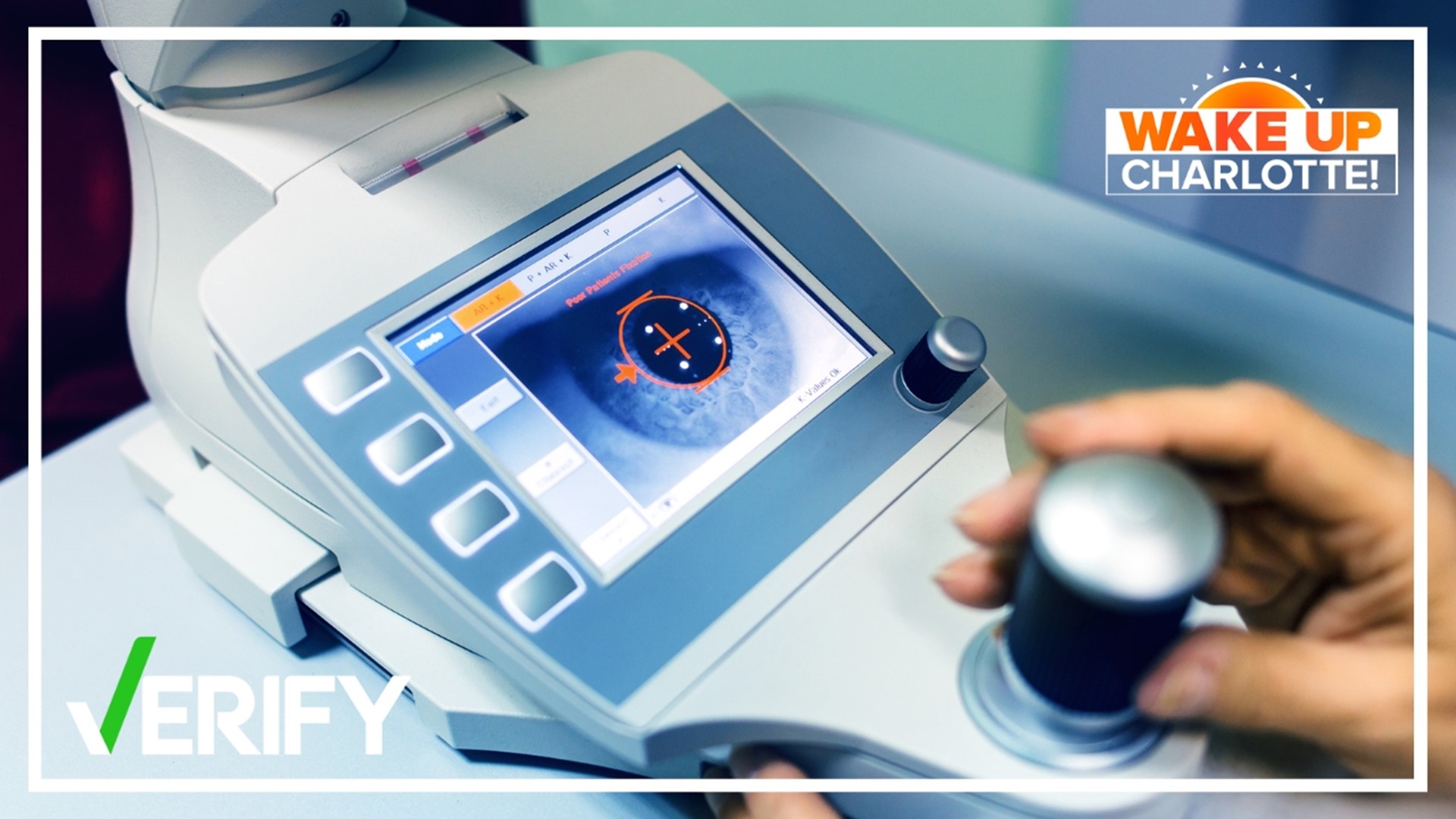CHARLOTTE, N.C. — October means the start of fall-winter, pumpkins and Halloween decorations but it's also the peak of flu season. One WCNC Charlotte viewer wanted to know if they should still get their flu shot this year, concerned about a cornea transplant they had more than 20 years ago.
Harper E wrote:
Over 20 years ago, I had a cornea transplant. About 7 to 8 years ago, I was told that taking the flu shot could cause rejection of my cornea transplant. Is this true or False?
OUR SOURCES:
WHAT WE FOUND:
According to the National Institute of Health, the cornea is the most commonly transplanted tissue in the body. The study says while these transplants have very high success rates, rejection is also possible. To ensure a healthy transplant, doctors will give patients immunosuppressants to prevent the immune system from attacking healthy cells by mistake.
“So, we know that a vaccine stimulates the immune system, which is our theory on why it may put a transplant patient at a slightly higher risk of rejection. But infections also stimulate the immune system, so we must keep that in mind,” Wiley said.
Wiley said if a patient has a rejection episode, those are usually treatable. However, if someone gets the flu or a COVID-19 infection, you can often end up with a life-threatening illness in certain cases.
For the latest Verify stories, download the WCNC Charlotte mobile app and enable push notifications.
“Overall, we recommend just getting the vaccine if it's available to you and looking out for the signs and symptoms of rejection,” Wiley said.
Wiley said the signs of injection include redness, sensitivity to light, decreased vision, and pain. He stresses that anyone could be at risk for a cornea rejection even if they are 20 years out from their transplant.
“You still have to monitor for rejection. The risk, you know, is once again low, but not zero,” Wiley said.
Wiley suggests patients chat with their local ophthalmologist, who could prescribe drops called Prednisone at the time of their vaccination to lower their risk of rejection.
"It is a great question, and it's something that is somewhat debated in the medical literature. However, I am a proponent of getting the vaccine and monitoring the transplant very closely," Wiley said.
Contact Meghan Bragg at mbragg@wcnc.com and follow her on Facebook, Twitter and Instagram.
WCNC Charlotte's Verify series is all about trying to make a difference in the Carolinas by making sure the community has the correct information. WCNC Charlotte outlines concisely what we know and what we don't know. Sometimes the answer can be surprising. Watch previous stories where we verify social media claims in the YouTube playlist below and subscribe to get updated when new videos are uploaded.
VERIFY is dedicated to helping the public distinguish between true and false information. The VERIFY team, with help from questions submitted by the audience, tracks the spread of stories or claims that need clarification or correction. Have something you want VERIFIED? Text us at 704-329-3600 or visit VERIFY.

